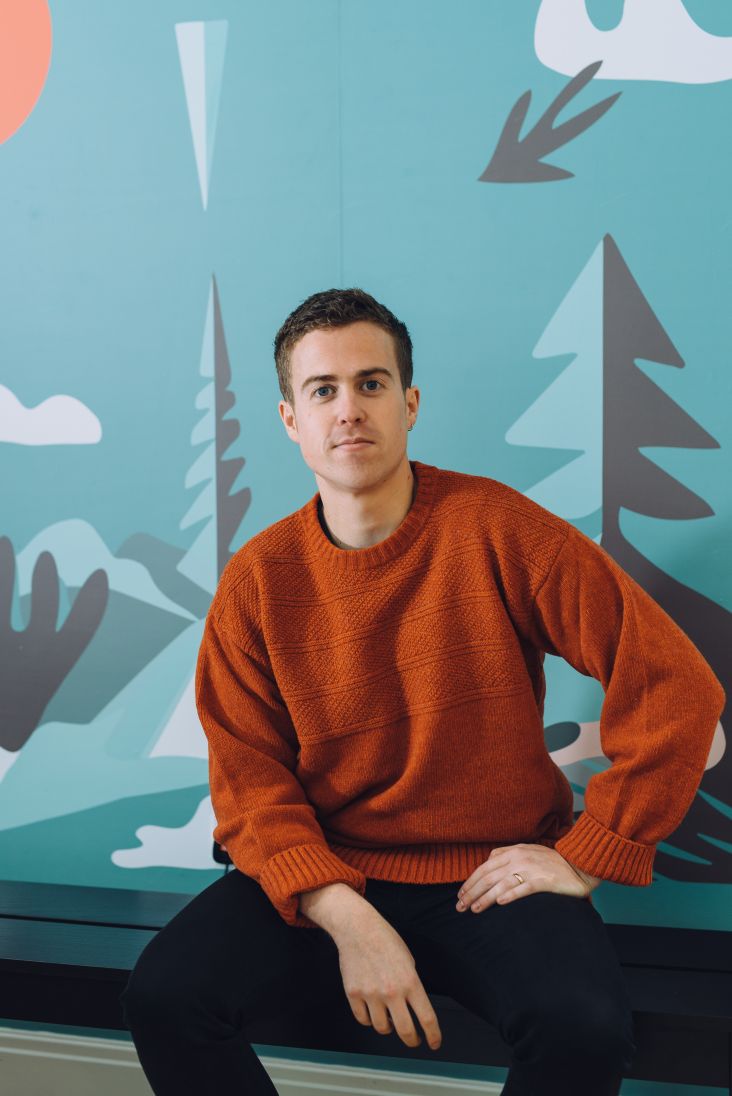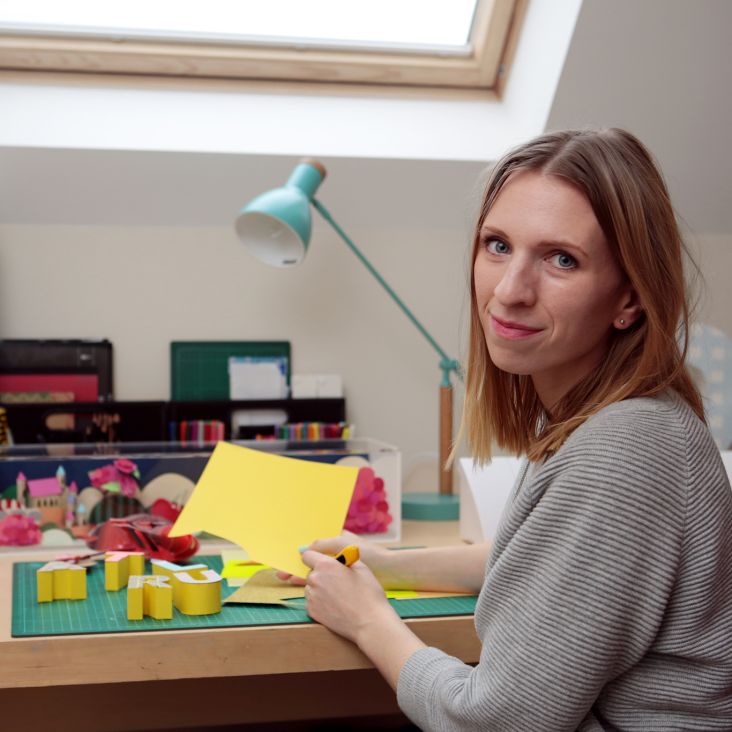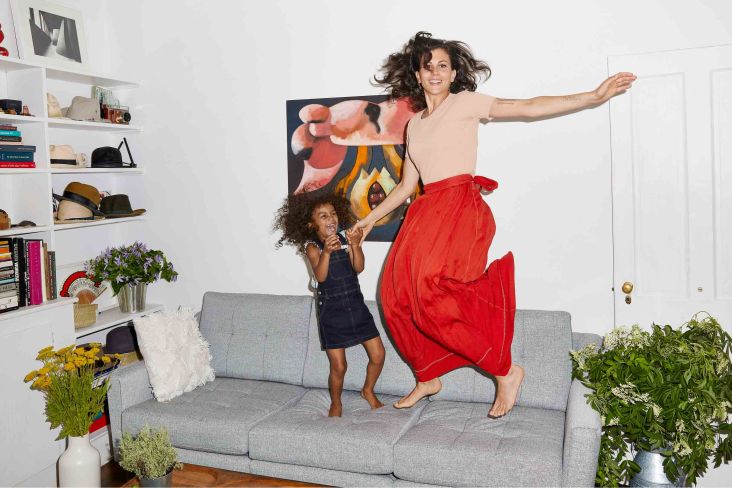Andy Wright on the pressures of the design industry and how to create a 'new normal'
A big name on the Australian creative scene and a firm favourite at Shillington, Andy Wright has an impressive CV, having worked at agencies including Interbrand, R/GA and Landor, and co-founding Sydney-based For the People.
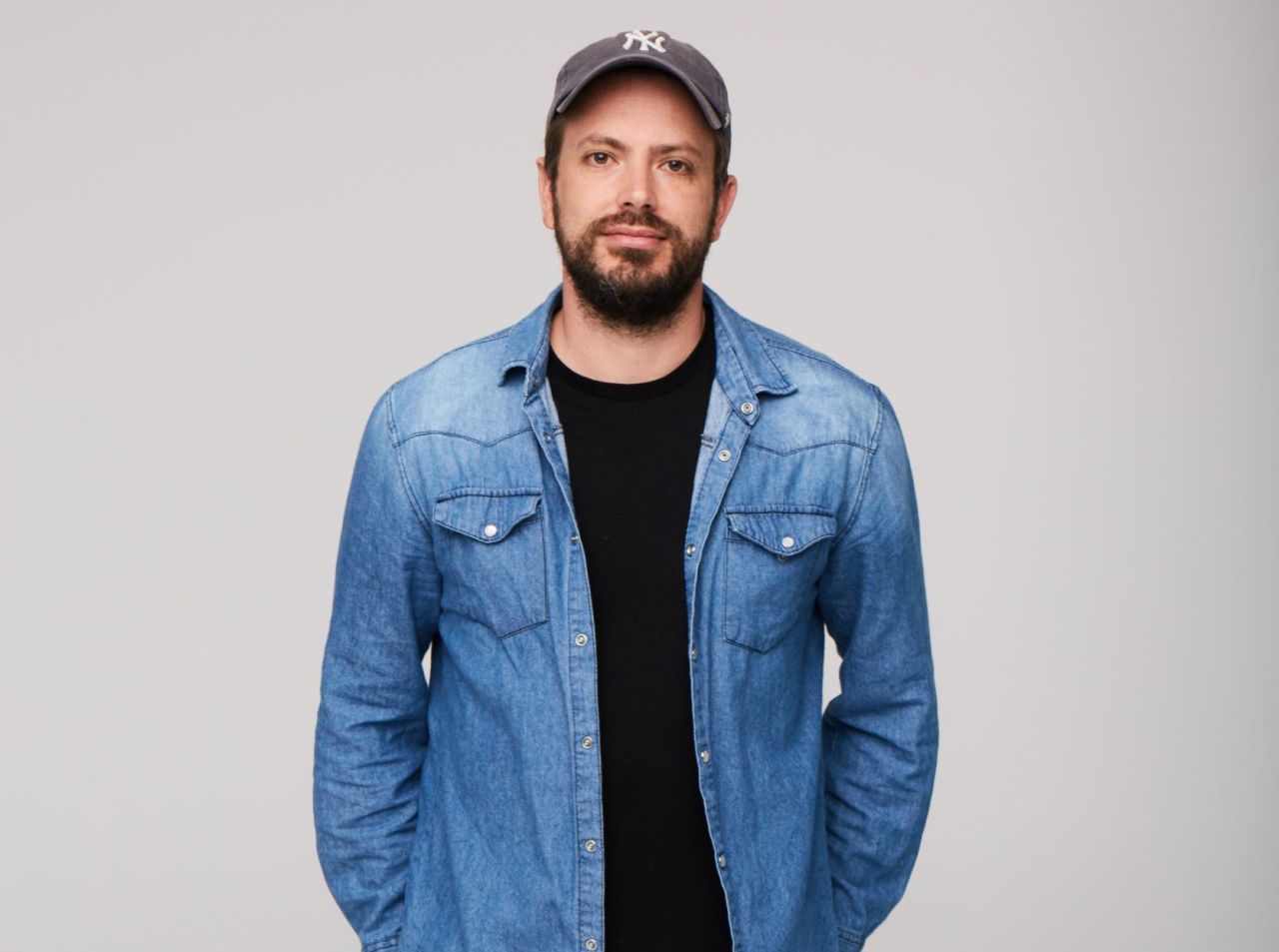
Andy Wright
He recently branched out in a new direction to become Managing Director of project management software company Streamtime, as well as start the brilliant initiative Never Not Creative, a community of creatives addressing some key challenges and issues to help improve wellbeing and make the industry "a better place".
We spoke to Andy to get the lowdown on his career, achieving a "new normal" for the industry and his advice for aspiring creatives.
We love the ethos behind Never Not Creative. Can you tell us more about it?
To be honest, it started as a headline we were going to use for the Streamtime website. But in my first days at Streamtime, I got the chance to do a lot of thinking. I've always wanted to try and do more for the creative industry. I've seen a lot happen, good and bad. So as I was throwing post-it's up on walls, I hit on the idea that Never Not Creative could actually be much bigger than a ‘line’. It encapsulates what everyone in the industry prides themselves on, but at the same time describes the pressure that comes with it.
When Jason (Little), Damian (Borchok) and I started For The People, we talked about trying to shake things up, trying out new models and processes and sharing all our learnings along the way. It's incredibly hard to do that as well as starting and running a business, and trying to compete in the industry at the same time.
Moving to Streamtime has meant I have more headspace to devote to tackling some of the issues in the industry, I can do it from a (fairly) neutral position and I have the backing of Streamtime and a great partner in Aaron Green, Streamtime founder, who has always tried to give back to the industry.
There are so many things that I've seen that I believe need addressing. Unpaid internships, better equality and opportunity, helping people and businesses in the industry be properly recognised and benefit from the value they provide, and a quite worrying mental health problem.
What inspired the community?
For the last year at For The People, I was lucky enough to have the Australian Workers Union as a client. Yes, kind of relevant given the name of our agency. Part of our work for them led to the launch of a union for hairstylists. I learned a hell of a lot about rights in the workplace, the power of community, and inevitably, a broader understanding of money, power and exploitation.
Now, I'm not suggesting the community is going to turn into a Union. There are a few things that I think are flawed in that model. But, there are certainly a few principles and tactics that can help create change in an industry that regards too many 'wrongs' as normal, and just, 'well it's always been that way'.
The other inspiration is what I've seen happen to others and what I've experienced myself while working in this industry. From mental health problems to physical health problems and the lack of equal opportunity for people looking to get a step on the overly rung ladder. I figured that now was a good time to see if I could put my experience to good use.
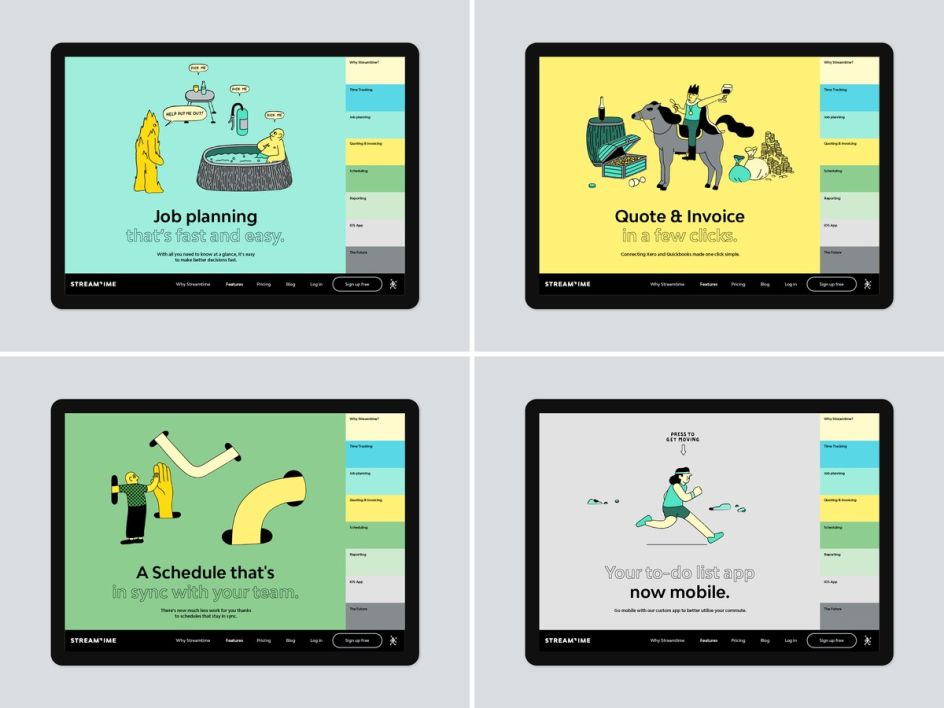
Streamtime
What feedback have you had since starting Never Not Creative? Do you feel it’s making a difference?
I've certainly had some kind messages. They range from a simple thanks to, this is just what our industry needs. To be honest, though, the best feedback comes from others taking on the message, sharing ideas, or turning up to events.
It's great to hear from people who have used Never Not Creative ideas or content in talks or sharing initiatives with their teams. I woke up one morning to a notification from a member of the community who'd created a presentation for his team in Austin, Texas to discuss mental health in their business. That was a bloody great way to start the day!
What do you think is the biggest problem with the creative industries? What frustrates you?
I think the biggest problem is that we've dug our own grave and we're happy to just drop down and lie in it. That might sound a bit dramatic and apocalyptic, but it frustrates me how accepting we are of things that have a seriously detrimental impact on our lives.
For example, having to work a weekend and not get paid, because that's just the way it is. Can't get paid right now, because there are some other bills for your client to pay. Working for free to get a foot in the door, we've all had to do it. Pitching for free, because it could look great in our portfolio. Burning out - yep take a few days off – you'll be fine.
I'm generalising of course, but the above is just far too normal. We hate to say no. We shy away from conversations about money, and while we'd love for everyone else to speak up and show their vulnerability, it's the last thing we're willing to do ourselves.
We need a new normal. A normal that means we're valued and respected in the same way as other experts and professionals. A normal that sets some standards, levels the playing field and makes life more manageable. I don't mean we want it easy. I don't think that's even something in the creative's vocabulary. I just mean that we earn the respect and value of a truly professional service.
The impact on our mental health comes at a much higher cost than the upside of any 'work' we do. It’s often something we don’t realise until it’s too late. The long hours, the multiple briefs at once, the constructive criticism, the pressure to come up with something new every single day, or the pressure to climb at the same rate as everyone climbing around us – we're so dedicated to pleasing or keeping up with others that we forget to put ourselves first.
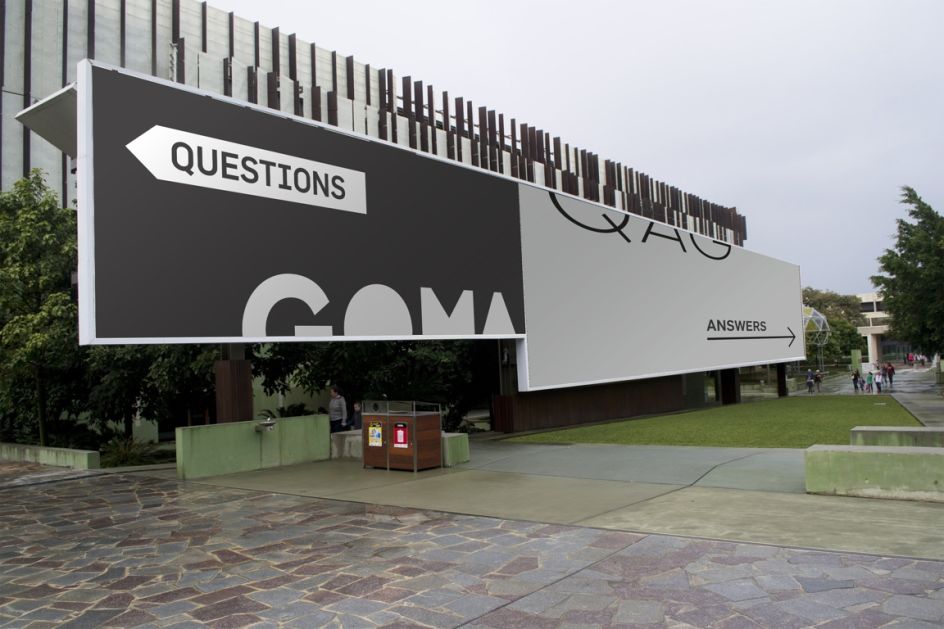
Questions & Answers
You’re launching the Creative’s Pledge in Australia – what is its purpose?
I'm not yet satisfied with where the pledge is, but what's great about it, is how, as a community, we've created some standards and promises to ourselves and our clients about how the world should be. The new normal, if you like. The process was really quite ambitious, but I was really surprised at how well it all worked.
We started with a Google doc, some sections and some example pledges. Then, the community went to work. Suggestions were added, lines were rewritten, and all in a very collaborative and constructive spirit. I remember being in a cafe one morning, opening up the doc and I could see 6 people typing away, making suggestions and having a conversation in the comments.
The final words exist now, but it won't be properly launched until we've found a way to put it online, let people sign it, share it and save it somewhere they can keep it as a daily reminder. My hope is that we can achieve that before the end of the year.
Its purpose is to set the standards we need to thrive as an industry. Set guidelines for those starting out, and markers for those leading teams and businesses who are responsible for others. It can also become something that could be used as an artefact or social contract between employers and employees, or between creatives and their clients, or just you and yourself. I've already started using components of it with agencies we work with at Streamtime. Committing to upfront payments and hours that are acceptable to be contacted, and agreeing on our mutual levels of expertise are just some of the lines included in it.
Once launched properly, I'd expect that it quickly morphs into new versions and that it's adapted by different creatives so that it works for them.
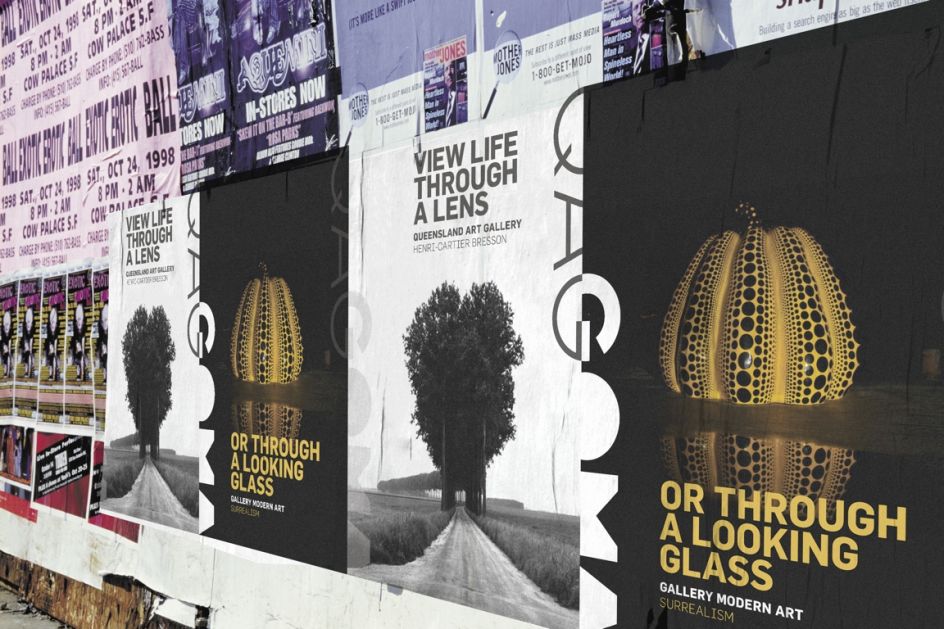
Queensland Art Gallery
You caused a stir when you left For the People. What legacy do you hope you’ve left with it?
It was certainly a big decision and not an easy one to make. The legacy part is a tough one to answer. It would be pretty arrogant to think that people are still doing things the way that I'd hoped while I was still there. We always prided ourselves on hiring very smart people who would bring all of themselves, their expertise and their ideas to work. There were some days when I could just look around, listen and learn because we were hiring people to do things that we couldn't. I think we felt a bigger sense of achievement when the business was visibly the sum of all of its parts, vs the sum of its founders.
The team recently launched a brand project with the west coast of Tasmania. If you haven't seen it, you should really check it out. It's a project that has For The People DNA running all over and through it. Transparency, community involvement, great design and a solution that's the product of the people in the community who can now own and use it. I had nothing to do with it, but it's certainly very pleasing to see such amazing work being done in a way that sticks true to what we wanted For The People to stand for.
You’re currently the Managing Director at Streamtime. What’s keeping you busy there? What challenges are you facing?
This first year at Streamtime has had its fair share of challenges. Some are really exciting.
How to build a product that evolves and helps facilitate upcoming changes in the industry, helps creatives to be paid more and more on time, or to get a better understanding of the margins in their business and the wellbeing of their team.
How to engage the industry in defining what the future looks like and how much of that future should be in our product. There's no point us building something for step eight if everyone's looking to make it to step three.
How to grow at twice the rate that we are now. It's great to look at a graph that's heading up, but I do feel like there are so many creative businesses out there that we're just not even on their radar. We get so much great feedback that I think we're missing a trick somewhere. Of course, there are some people that we're just not right for, that’s just as important in understanding that we've built a brand and product that's still finding its place.
Can you talk us through some of your career highlights?
Back in the UK, I used to work in marketing for a couple of internet companies. One of the best campaigns that we built was something called the Lycos Viral Chart. At the time, there was no YouTube, instead, videos were shared as attachments over email. We wanted to grow traffic and working with an agency called Mustoes, came up with an idea to create a destination where all these attachments could be found and rated. It became an authority for what was culturally cool and viral, for a short while anyway, until Youtube came along.
At Interbrand, big rebrands like Queensland Art Gallery and the Gallery of Modern Art and Australia Post were projects that were as much about brand and design as they were about engaging entire teams and helping them to own their brands.
Having Streamtime be shortlisted for a Webby (we lost to Squarespace) and winning a D&AD pencil were nice accolades to receive. Not really for the awards, but for recognition that we could change the way a brand could be built - product first - and still have the merit of the solution recognised for brand and product alike.
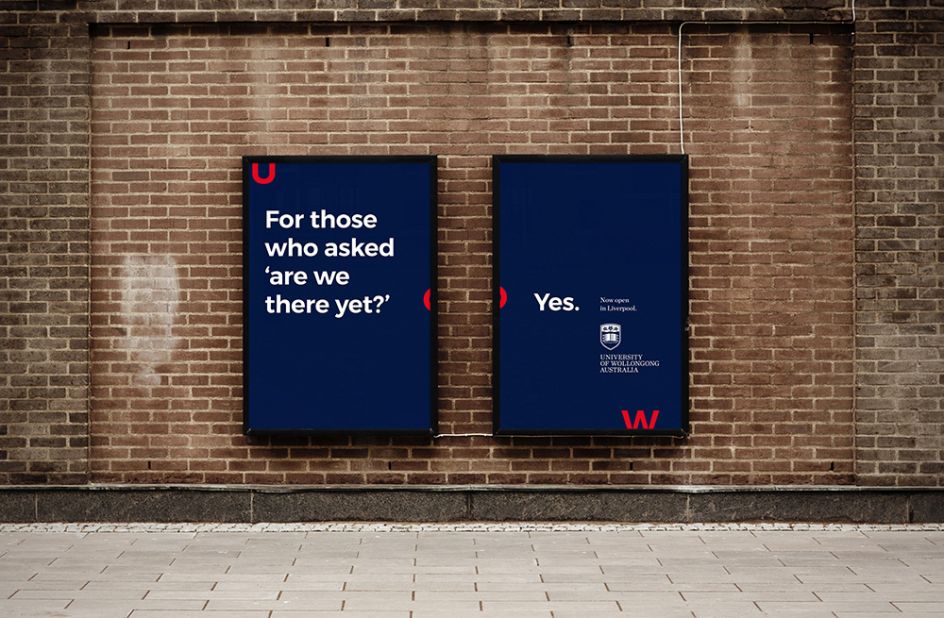
University of Wollongong campaign
You’ve said that you have a “healthy cynicism” when it comes to awards. Even after winning many. Can you elaborate?
Awards have their merits. They help to validate work, further careers, build a reputation and team morale. But I've also seen them become more important than the business objective the agency was given in the first place.
When I was on the client side, I was approached more than once to run an ad to run in some regional newspaper so that it could be entered into an award. While I understand the reasoning for this better now, it' still makes me uncomfortable. At the time, the agency was struggling to crack a brief and then all of a sudden their focus – in my eyes – switched to awards and self-promotion. Maybe it was just badly handled, but it still didn't feel right.
I've seen lots of additional applications created for awards that will never see the light of day, or weren't even part of the brief or signed off by the client. Of course, many of these are to demonstrate the strength of the idea or deliver that smile in the mind that the client wouldn't pay for or appreciate.
But, I've also seen work heavily awarded that had no impact on a business at all. If we're just awarding work for what it looks like, maybe we should just open up galleries and sell tickets. Perhaps that’s a bit facetious, but a big step forward would be to have much more transparency on why work wins awards and the criteria it checks.
When looking for fresh talent, what makes someone stand out?
A strong opinion. A point of view on the future. A passion for something that they're actively doing something about. The ability to do something that can't be done by anyone else in the business.
I can't tell you the number of times I've interviewed people for a brand design or brand strategy role, that, when I ask the question, "what's your favourite brand and why" they were completely stumped.
I'd also much rather see the work in progress on a project or all the ideas that got discarded through the process than the final polished pieces in a portfolio. It's the rough work that I'm going to see from someone 95% of the time when we work together. It's also the purer work from that person, untainted by a client or other people's feedback.
What advice would you give to aspiring designers?
Speak up, stand out, and if something doesn't feel right to you, don't do it. Learn about business. There's a high chance you're going to start your own business, you'll have to invoice a client, and pay your own tax (you will inevitably freelance at some point). If this all sounds a bit too grown up, it isn't. The quicker you work out that your profession has to have a commercial outcome, the better.
At the same time, don't sweat the small stuff. One of the biggest stressors that cause symptoms of depression and anxiety in young creatives is the pressure that you put on yourself. I know it's easy to say, but there will always be another project, another client. There will always be a way to make something better. That doesn't mean you should kill yourself to do it. You, your family and your friends are more important than a brief.
You are about to embark on a career that can change lives, fortunes and opinions. It's a great opportunity. Just make sure that it's always changing you for the better, not vice versa.
Finally, what’s next for you?
Action. Initiatives around mental health, unpaid internships and operationalising the Creative's Pledge. Getting the discussion around the future of creative businesses happening.
Also, launching the results of the Mentally Healthy 2018 study we conducted and, trying to stay on top of my own mental health. That's probably a different set of questions though!
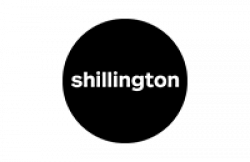

















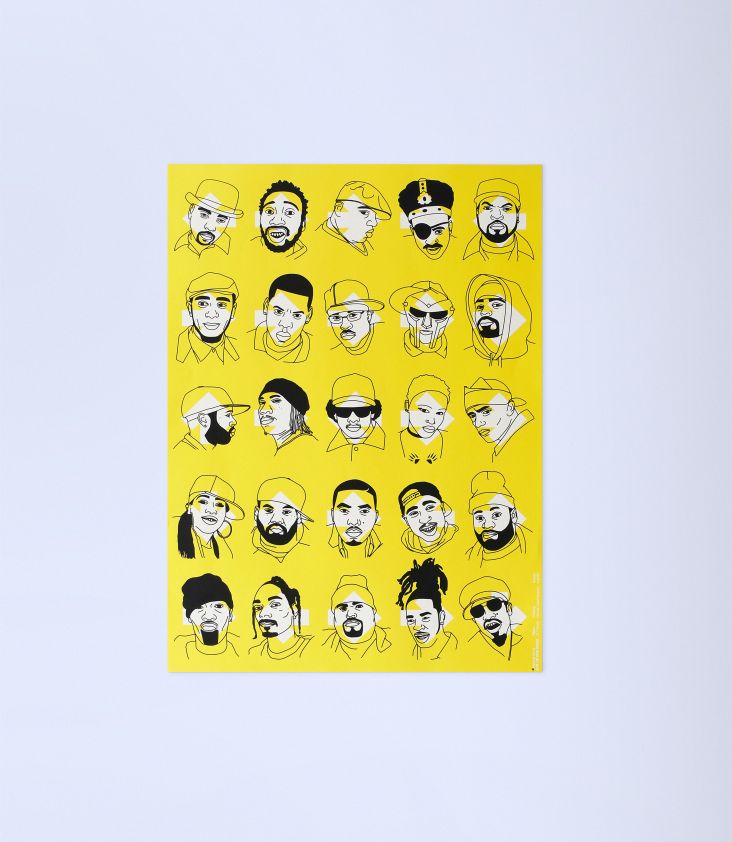
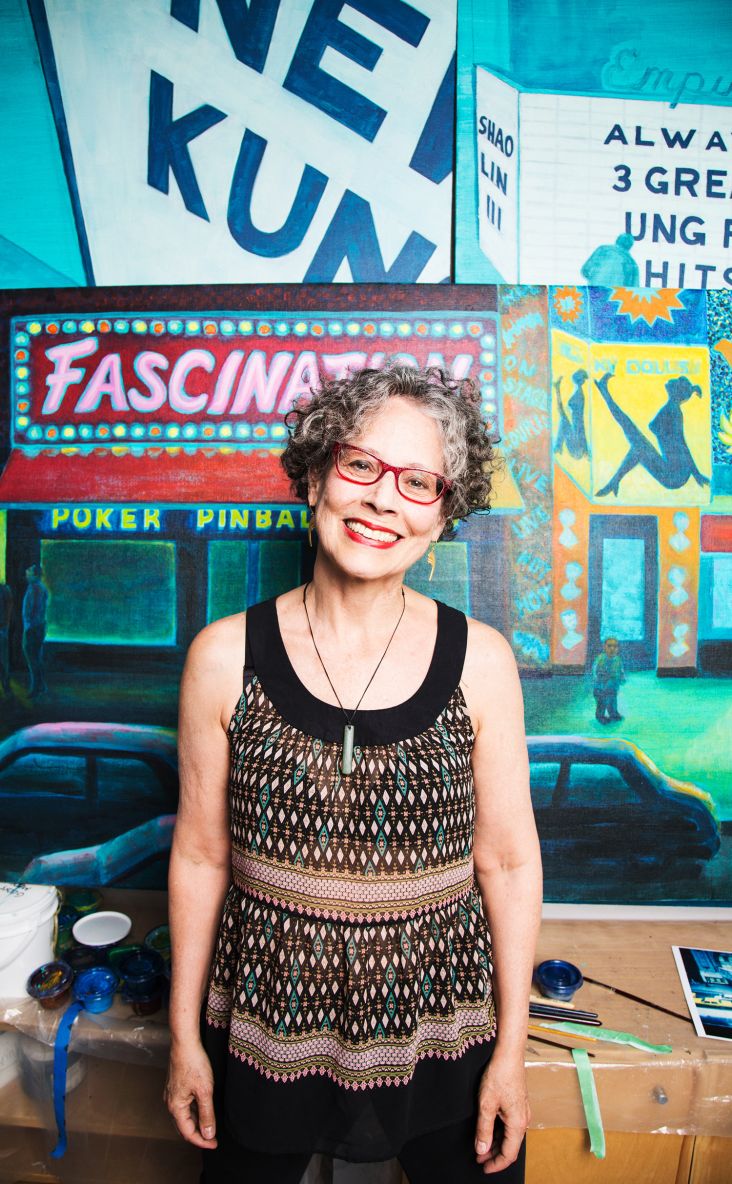
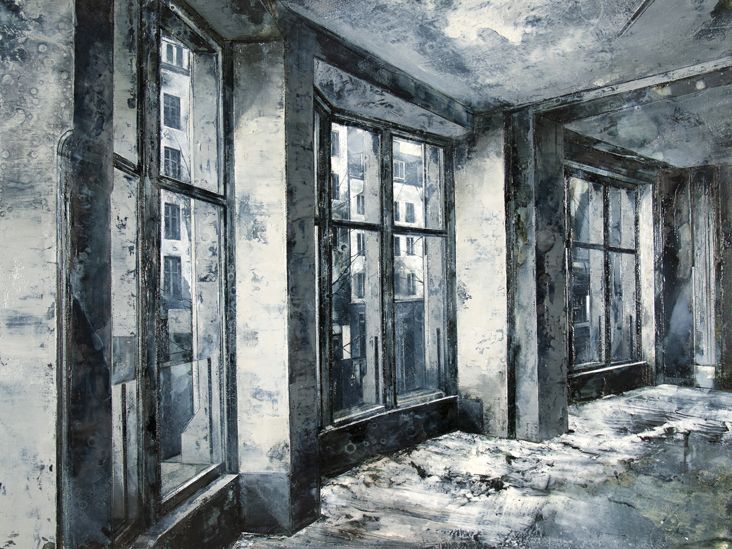
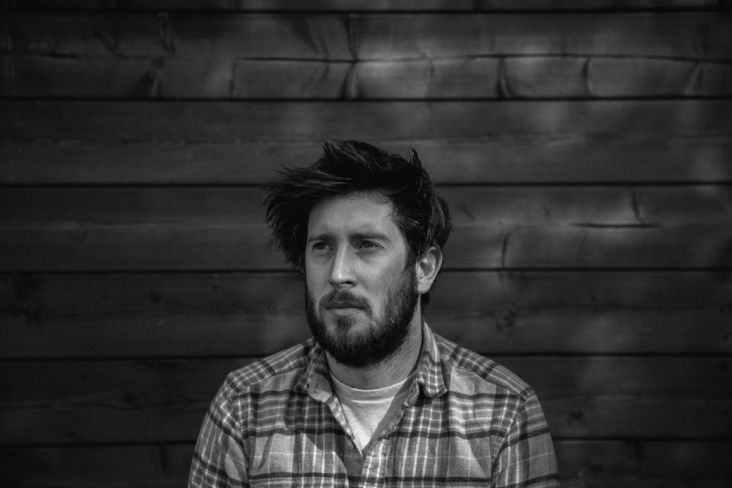
](https://www.creativeboom.com/upload/articles/93/93e3c16dc1103cfd23e8a25eeb54b2a1879953c8_732.jpeg)
